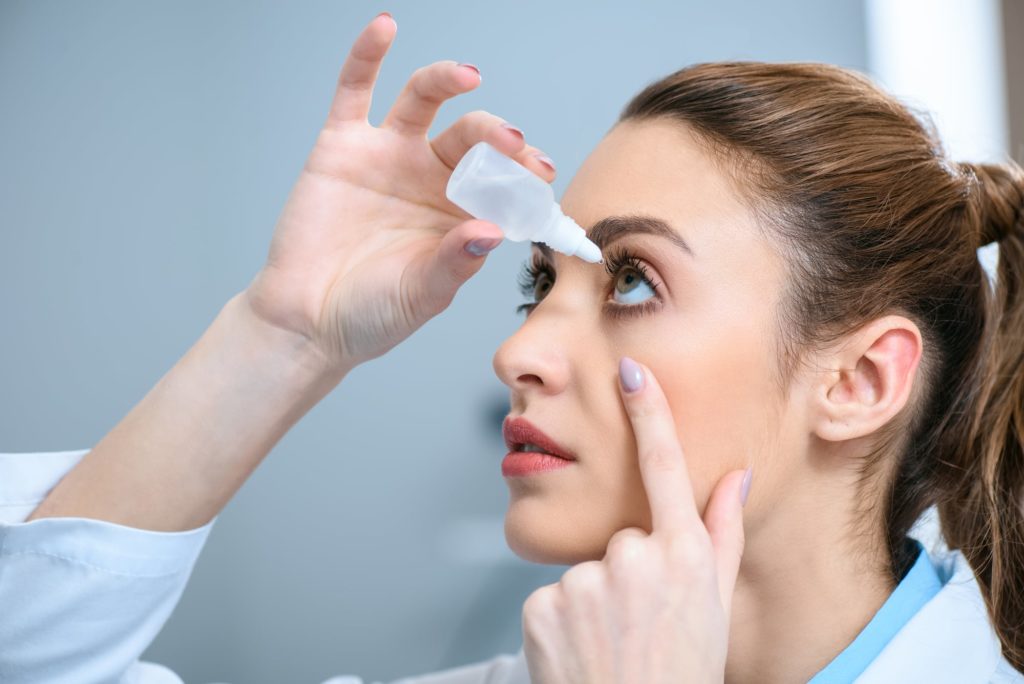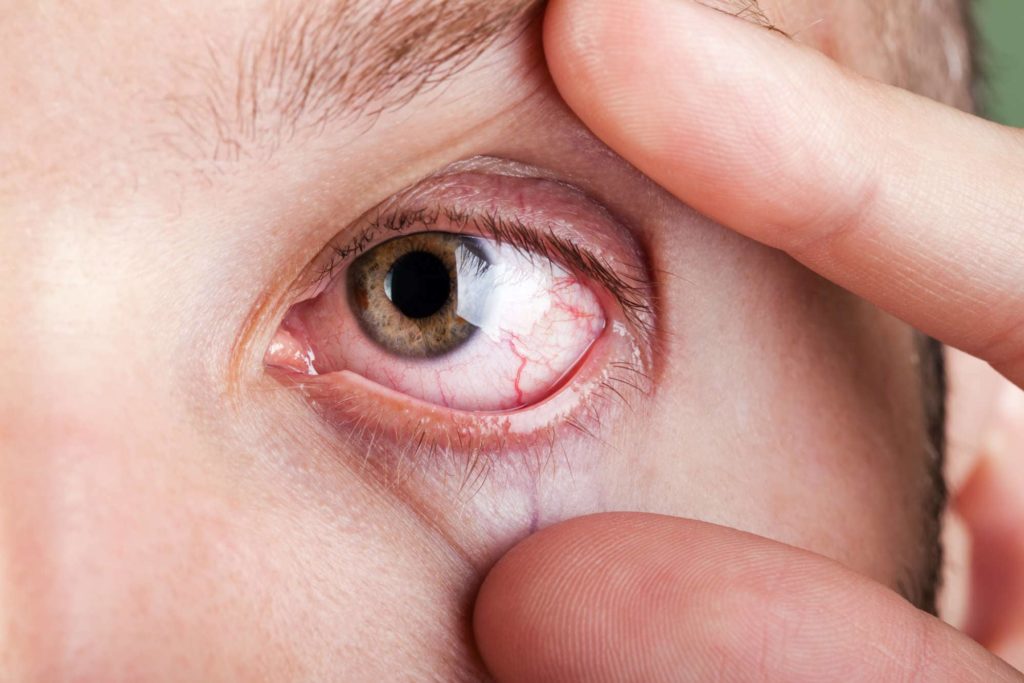Dry eye disease is a very common cause of ocular discomfort often leading to feelings of ocular fatigue, grittiness, stinging or variable vision. Book your free no obligation laser eye surgery screening today.
Dry eye syndrome is common condition that becomes more common with age, especially in females. Up to a third of the population may have dry eyes or will have experienced dry eye symptoms at some point. Modern living, involving hours of computer or tablet use, smart phones and indoor heating or air-conditioning, can cause or make symptoms of dry eye worse.
People with dry eyes do not produce either enough tears or the appropriate quality that would allow their natural tear film to coat their eyes consistently and keep them moist. In addition, this in turn leads to them being unable to eliminate dust and other irritants from the eyes, which can exacerbate the symptoms. Occasionally, your eyelids may not be spreading the tears evenly over your cornea.


In dry eye syndrome, a variety of symptoms may be present depending on the severity of the condition:
The tear film consists of three layers: the oily outer layer, the watery middle layer and the inner mucous layer. These components are produced by different glands of the eye and eyelids. When these glands are inflamed or their function is compromised, an imbalance between the water, oily and mucous components develops, and this results in an unstable tear film that evaporates easily and symptoms of dry eye. A variety of factors can affect this balance.
A number of reasons can result in dry eye symptoms:
Dry eye syndrome can be diagnosed by your optometrist (optician) or eye doctor (ophthalmologist). A detailed history is obtained regarding your general health, when the symptoms are more noticeable and what tasks or risk factors may be causing or exacerbating the condition.
A variety of tests can be carried out to understand the cause of your symptoms and dry eye. These may include a detailed assessment of your lids and ocular surface with the slit-lamp, the use of fluorescein dye to assess the tear film and health of the surface, a Schirmer’s test to assess the quantity of tear production, and an osmolarity test.
Contact lens wear is safe and most likely safer than ever. However, lenses do reduce the amount of oxygen that reaches the top layer of the cornea, the epithelium, causing breakdown and dryness of the surface. Contact lens intolerance tends to develop with chronic wear over the years; symptoms include irritation, burning sensation, grittiness, dry eye and watery red eye. In more serious cases, corneal ulceration with potentially sight threatening infection can develop.
If you are experiencing dry eye syndrome or redness of the eyes with your contact lenses, you should immediately consider reducing the hours you wear the lenses or revert to using your glasses. This will reduce the risk of more serious complications. Other vision correction options, such as laser eye surgery, should be considered at this stage in order to keep your eyes safe. In fact, LASIK has been shown to reduce dry eye symptoms in patients who were experiencing dry eyes with their contact lens wear.
The majority of patients will manage with one or two of the following measures. Occasionally, in severe dry eye syndrome, more or all of these measures may be required. Depending on the severity, it can take months or longer for your symptoms to improve.
There is a plethora of artificial tear supplements or lubricant eye drops available over the counter and via prescription. In significant dry eye the use of drops without preservative (preservative-free) is recommended. Preservative-free lubricant drops can be used as often as required to relieve your symptoms, even every hour or more frequently.
Punctal plugs can be used to block the punti (drainage openings) of the eyelids; the procedure is painless and reversible. The punctal plugs are made of silicone materials or collagen (dissolvable) and they work by preventing the drainage of your natural tears and keeping your eyes moist.
Eating a healthy balanced diet, enriched with fruit, vegetables and unsaturated oils, is important in maintaining good health and preserving your vision. Omega-3 fatty acids are particularly useful in preventing and treating dry eyes; they are considered to have an anti-inflammatory effect on the surface of the eyes and eyelid glands. Good dietary sources include salmon, walnuts, flaxseeds, cauliflower, spinach and eggs.
Dry eye symptoms are often caused by or exacerbated by the presence of inflammation of the eyelid margins, known as blepharitis. This condition can be treated by warm compresses of your eyelids, followed by gentle massaging of the lids. The aim is to encourage the flow of oils from within the lid glands and remove the dried oils and scales with bacteria from the lids.
In moderate to severe dry eye syndrome, your eyes may remain uncomfortable despite the above measures. In such cases, drops that modify the immune status and response of the eye surface may help.
Steroid and ciclosporin drops reduce the inflammation associated with dry eye and can make your eyes more comfortable. Generally, steroids are used for a limited period of time as they can cause cataract and glaucoma with long-term use. Steroid sparing agents, such as ciclosporin, can be used in isolation or in conjunction with steroid drops. Ciclosporin drops, e.g. Ikervis, have a better safety profile but they can take a few months to improve your symptoms.
We're rated excellent on Trustpilot & average 5-stars on Google, Doctify and TopDoctor for the outstanding service we provide before, during & after treatment.
Nuffield Health Wessex Hospital
Winchester Road, Chandlers Ford,
Eastleigh, SO53 2DW
© Laser Vision Eye Centre 2023. All Rights Reserved.
Enter your details below to get instant access to your free infopack.